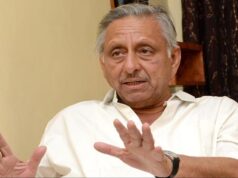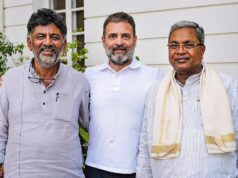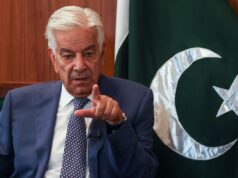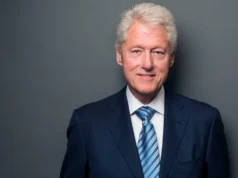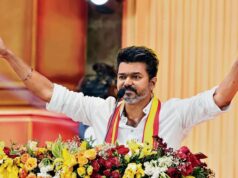Manmohan Singh, who served as India’s prime minister from 2004 to 2014 and is credited with spearheading the country’s economic liberalization, died on December 26 at the age of 92. His rise to become India’s 14th prime minister from a humble childhood in Gah, Punjab (now in Pakistan) is evidence of his tenacity, intelligence, and unflinching dedication to public service.
India’s transition from a faltering post-colonial economy to a rising global powerhouse is indelibly linked to Manmohan. Few persons were as close to Manmohan Singh as renowned economist Montek Singh Ahluwalia, who collaborated with him as prime minister and then as finance minister. With clarity and the sincerity of a confidant, Ahluwalia highlights important aspects of Manmohan Singh’s personality in his 2020 book Backstage: The Story Behind India’s High Growth Years. Here are some quotes from Ahluwalia’s book that honor Manmohan Singh’s enormous contribution to the development of the country, told with uncommon candor and personal insights:
ON THE APPEARANCE OF MANMOHAN AS FINANCE MINISTER
On June 21, 1991, the new government was to take office, and I was the secretary of trade. Being invited to a meeting at the PMO prior to the event was a pleasant surprise. Dr. Manmohan Singh, who had just returned to India from three years at the South Commission in Geneva, was one of those in attendance. He had been named PM Chandra Shekhar’s economic advisor and head of the University Grants Commission. We had been contacted by P.V. Narasimha Rao, the PM designee, to discuss his remarks for his first national broadcast, which was set for the next day. Given the ongoing economic crisis, he needed to provide some indication of how it will be resolved.
Rao made it clear in his opening remarks that the government will need to make tough choices and find creative ways to solve problems. “We need to clear our minds of the cobwebs,” he stated. “Manmohan, you know what needs to be done,” Rao said as he adjourned the meeting. Why don’t you work on this in your North Block office and email me a draft of what I should say on TV later today? My first thought was that Manmohan Singh would be the next finance minister at that point! By then, I had known him for more than 15 years.
When he was RBI governor, Isher and I even brought our kids to stay with his family in Mumbai. He had gone above and beyond to make our boys’ visit unforgettable, as did his wife, Gursharan Kaur. The choice of finance minister picked by PM Rao could not have been more ideal. Both domestically and globally, Manmohan Singh enjoyed great esteem in the financial community. He was well-versed in the workings of the economy and knew which key levers to pull, and he was aware that he had to untie the many knots that bound it.
THE “HOP, SKIP, AND JUMP” DEVALUATION
The declaration of a 9% rupee devaluation on July 1, 1991, was the first move in the response to the economic crisis. I was not informed of the decision in my capacity as commerce secretary. Despite the fact that 9% felt insufficient, I was certain that it was the right move. A second devaluation two days later brought the total depreciation down to roughly 19 percent, which was a far more sensible adjustment to address the balance of payments [BOP] situation.
Later, Dr. Manmohan Singh informed me that PM Rao pushed for the adoption of the two-step procedure. Additionally, Dr. Singh informed me that he had promptly drafted a handwritten memo detailing the two-step procedure and secured the PM’s approved signature. RBI governor S. Venkitaramanan and deputy governor C. Rangarajan, who was in charge of managing currency rates, were informed of the decision. Naturally, they approved the proposal and were aware of the upcoming depreciation. To ensure confidentiality, they called the process “Hop, Skip, and Jump” informally so they could use it when speaking on the phone.
Many people strongly criticized the first devaluation. President R. Venkataraman was not pleased when Dr. Manmohan Singh informed him of the necessity of devaluation. Additionally, the President expressed his displeasure to the Prime Minister, who became so concerned that he requested the finance minister to postpone the second devaluation! It turned out that before the markets opened on July 3, Manmohan Singh had already given the RBI the order to take the second step. In the code they had agreed upon, Rangarajan responded, “But I have already jumped,” when he phoned him again at the PM’s request to see whether the second step could be held back.
ECONOMIC GROWTH CHAMPION
Isher and I attended the live presentation of the budget speech by the finance minister in the House. As Victor Hugo famously remarked, “No power on earth can stop an idea whose time has come,” he ended on a decidedly positive note that has been widely repeated. One such concept, I propose to this august House, is the rise of India as a major global economic force. Make it plain to everyone on the planet. India is awake now. We will win. We will triumph.
The optimistic conclusion drawn by Manmohan Singh has shown to be astonishingly accurate. A Goldman Sachs research team headed by Jim O’Neill determined that India was one of the BRIC (Brazil, Russia, India, and China) nations that will most likely be the primary driver of future global development in 2001, exactly ten years later. (South Africa was later added, and the acronym was changed to BRICS.) The next years saw significant swaying between Brazil and Russia. As anticipated, China has already slowed down after 30 years of growth at a rate of more than 10%. Although India’s total growth has fluctuated, it has stayed very strong over the last 15 years, averaging 7.5% annually.
His wife, Gursharan Kaur, told Isher that during those demanding years as finance minister, Manmohan would frequently hum his favorite shabad (hymn) from the tenth guru as he was getting ready for work in the mornings: Deh shiva bar mohe ihe, shubh karman te kabhoon na taroon; na daroon ari se jab jaye ladoon, nishchay kar apani jeet karoon (Grant me this boon, Oh God, from Thy Greatness). May I never stop doing good deeds.May I confidently and resolutely confront all of my enemies in life without fear and declare victory! Religion is a very personal issue for Manmohan Singh. However, Isher, who has studied him attentively and herself likes to sing the Gurbani, tells me that beneath that soft demeanor lies a Sikh who finds great power in the Gurbani.
THE REFORMS’ CREDIT
Naturally, one would wonder how Manmohan Singh and Narasimha Rao should share the credit for the changes. It’s not a simple answer. Rao should take full credit for selecting Manmohan Singh due to his proven ability to lead the economy and support him along the process. There wouldn’t have been any reforms without that. Rao also acknowledged that for India to reach her full potential, reforms were required. He was pragmatic and open to change, in contrast to the majority of senior Congress politicians who were stuck in their ways. As industry minister, he spearheaded the process of loosening regulations on private sector investment choices because he was certain of their necessity.
I don’t believe he understood the significance of the entire range of changes required to unlock the economy’s potential, though. Manmohan Singh’s experience and insight played a major role in trade liberalization, the transition to a flexible currency rate, and banking sector reforms. He successfully planned these reforms, understanding their interdependencies. “Manmohan, go ahead and do what is needed and make a case for reforms both within the party and to the public,” Dr. Singh once urged me, referring to Rao’s candor in informing him. I’ll take my fair share of the credit if the reforms are successful. You will be held accountable if they fail.
Speaking at a book release event in New Delhi a few years after resigning as prime minister, Rao was asked about the dynamic between a prime minister and a finance minister. According to him, the finance minister is responsible for creating and carrying out economic policy, but he can only do so with the PM’s support. “The finance minister would be a zero without the support of the prime minister,” he stated. “The prime minister’s support is what makes it a 10 by putting a one before the zero.”
It was arranged beautifully. I had the clear impression that Rao didn’t want to be known as the “architect of the reforms,” as in creating the specifics, attesting to their technicality, and arguing in public for their necessity. Dr. Singh was the real architect of the reforms since he accomplished all of that with such skill. However, if Rao had not supported Dr. Singh, none of this would have occurred, and Rao wanted that to be recognized. Rao deserves all the recognition he has earned.
RECORD OF HIS PRIME MINISTERIAL SERVICE
couldn’t help but be pained by how the public’s sentiment shifted against Manmohan Singh as his second tenure came to an end. Since Jawaharlal Nehru, no one had held the prime ministership for as long as he had, serving for ten years. For the first seven of its ten years, his government performed exceptionally well. During this time, the economy grew at the quickest rate ever, averaging 8.4 percent.India became one of the world’s fastest-growing emerging market economies during his tenure as prime minister, moving from a low-income developing nation to the lower middle-income bracket. The private sector in India was seen as a potentially powerful growth engine with the ability to establish a global presence.
During his tenure, 138 million people were lifted out of poverty and the overall number of impoverished people in India decreased. Enrollment in primary schools approached universality, but much more work was required to raise educational standards. India had over 100,000 polio cases annually in previous years, but life expectancy increased and the country was proclaimed polio-free in 2014. Additionally, he was successful in ending the nuclear apartheid that had denied India the same advantages as the other members of the Nuclear Suppliers Group (NSG).
THE NUCLEAR DEAL OF HISTORY
The 2008 Indo-US nuclear agreement was significant because it cleared the path for the removal of several import restrictions on the trade of nuclear materials, such as uranium fuel for our reactors, which were in short supply. It also allowed for a much greater range of defense cooperation from the United States. The accomplishment of the nuclear agreement was largely due to Manmohan Singh’s calm leadership. He assembled a group of important individuals and persuaded them to collaborate and join the emerging consensus.
Since many members of the Congress party had mixed feelings about the agreement, it was especially crucial to lead from the front. They feared losing the backing of the Left and alienating Muslim voters, so they were apprehensive about the political repercussions of appearing to get too close to the US. At pivotal moments, the prime minister had to rally political backing from sources outside the party, such Dr. A.P.J. Abdul Kalam, who urged Samajwadi Party member Mulayam Singh to back the administration.The PM maintained his party’s support by skillfully and patiently navigating the turbulent political waters. Without the backing of Sonia Gandhi, who was well aware of the party’s hesitation, he most definitely could not have accomplished this.
Another factor was the PM’s strong personal relationship with President George W. Bush. In September 2008, while Bush was in Washington, DC, on a working visit, I caught a glimpse of his personal respect for Dr. Singh. A reluctant US Congress was piloting the Troubled Asset Relief Program (TARP), a crucial US Treasury initiative to address the financial crisis. The PM and certain members of his entourage were invited to a brief working lunch at the White House by President Bush.Manmohan started off by expressing gratitude to the president for meeting with us during a period when he was heavily focused on trying to convince Congress to pass TARP. “I can’t think of anyone else I would rather meet at a time of crisis,” Bush said to him in a beautiful compliment. People are remarkably calmed by you! It struck me as a pretty insightful comment.
ACCEPTING CRITICISM
A conference room in Vigyan Bhavan in New Delhi saw a number of high-profile visitors in 2012, including cabinet ministers, bankers, industrialists, senior editors, economists, attorneys, and civil officers. The event marked the publication of the second edition of India’s Economic Reforms and Development: Essays for Manmohan Singh, a festschrift for Dr. Singh that was co-edited by Isher and Ian Little, who served as his thesis advisor at Oxford.
The difficulties of economic reforms in India were to be discussed by a prominent panel that included Raghuram Rajan from the Chicago School of Business. The main visitor was Prime Minister Manmohan Singh. It was a somber atmosphere. Inflation was high and economic growth had slowed to 5.8% in the final quarter of 2011–12. Large-scale project implementation was hampered by regulatory delays. recently two months prior, the Supreme Court had revoked the 2G licenses, and the media had recently learned of a draft of the CAG’s report on coal block allocation.
Isher brought up the slowdown and the necessity of corrective action to start the conversation. The standout performance was Raghuram Rajan. He started off by stating that although India’s economic reforms had accomplished a lot, problems were still occurring. Instead of implementing more reforms in response to the slowing growth, the politicians tried to gain favor by expanding subsidies and transfers. He cautioned against the “resource raj,” which gave businessmen access to natural resources through political connections.
Manmohan Singh’s appointment as chief economic advisor in the Ministry of Finance four months later, in spite of Raghuram Rajan’s highly critical presentation, speaks much about him. The doha (verse) from Sant Kabir, which reads, Nindak niyare rakhiye, aangan kuti chawai, Bin pani, sabun bina, nirmal kare subhai (keep your critic close to you; give him shelter in your courtyard, without soap and water, he will cleanse your character), was being fulfilled by Dr. Singh, Isher pointed out to me.
Individualized Humility
The accomplishments of Manmohan Singh were never boasted about. He honestly thought it was preferable to let the outcomes do the talking. However, these accomplishments were never discussed in politics since neither he nor his party promoted them. I witnessed this myself in 2013, when the Congress appeared incapable or unwilling to take credit for India’s poverty reduction, which was universally hailed as a significant accomplishment globally.
Because people have short memories, it was not surprising that by the conclusion of UPA 2, the accomplishments of the first seven years had been forgotten in favor of the economic slowdown, a sense of indecision in decision-making, and the constant accusations of corruption. Manmohan Singh was questioned about his term during his most recent press conference. He claimed to have done the best he could, saying with characteristic humility, “History will judge me more kindly than the press does today.” He will undoubtedly be shown to be correct.But I reminded him that he was quoting Winston Churchill when he said that. However, Churchill continued by saying that since he planned to create history himself, it would be more forgiving of him! Despite my repeated requests, Dr. Manmohan Singh has not written his memoirs.
